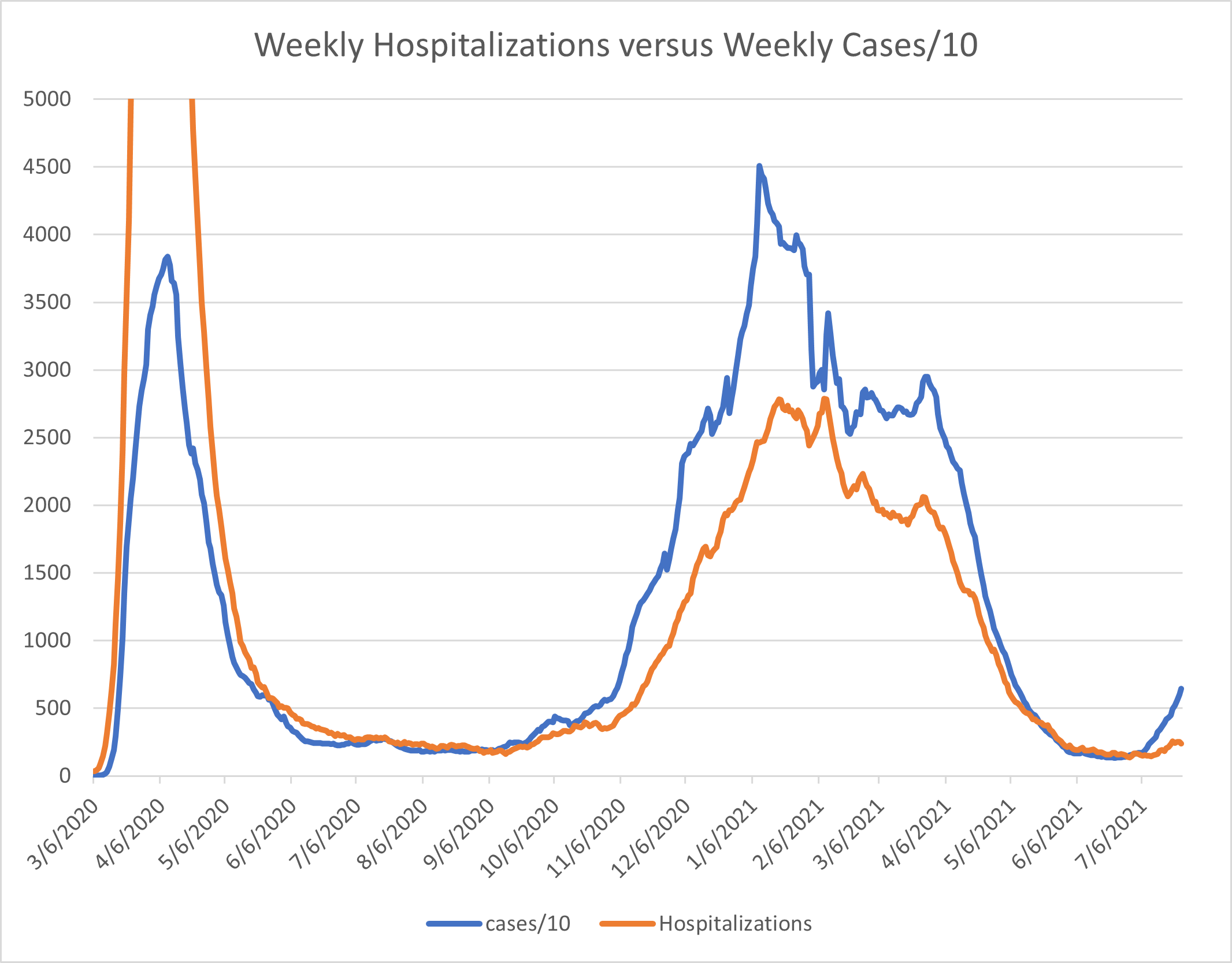Should the vaccinated change their behavior?
July 30, 2021 By Alan SalzbergWe know that delta is causing fairly dramatic case increases. That is the subject of my last blog (see here). We also know that vaccinated people still run little risk of getting very sick. Given that, there seems no reason to change your behavior. If you didn't avoid crowds or wear a mask during flu season, you can go about your business now as a vaccinated person. Your risks are lower right now.
But there is a question that is worth considering: are you putting the unvaccinated and immune-suppressed at serious risk? To answer that, we need to understand how much vaccinated people are transmitting the virus.
Unfortunately, the CDC issued new (and vague) mask guidance with near zero information attached to it, prompting the Washington Post to ask "Where's the data?" The CDC site tells us "emerging data suggest lower effectiveness against confirmed infection and symptomatic disease caused by the Beta, Gamma, and Delta variants." But how much lower? Are we talking about 90% vs 95% or 50% vs 95%. As I mentioned in my last blog, it might be more like 50%. The frustrating thing is that the CDC has apparently been collecting some data in the US but is only giving these vague summaries. From data in Europe and Israel, the Pfizer/Moderna vaccines appear to be between 50% to 70% effective in preventing PCR-confirmed illness.
Even if the effectiveness is down to 50%, it still might mean far less risk of vaccinated transmission to other vaccinated than 50%. This is because, at least from research on earlier variants, it appears the infected + vaccinated have lower peak virus levels and fewer days of contagiousness(see this scientific american article). This could get us from 50% reduction in transmission of unvaxed to vaxed to 90% or more reduction from vaxed to vaxed. Unfortunately, we have not yet seen that data.
However, the CDC is sitting on an internal report (and the underlying data) that might give us some answers (the report was leaked...see this Washington Post article). The report on the leaked report by the Washington Post says Delta might be different, and that instead of being less contagious, vaccinated people may be equally contagious.
So, it's tough to give advice, especially to those who interact with people who are immune-suppressed. If you're interacting with only vaccinated (and non-immuno-suppressed) people and children, there is little risk of you being a vector of serious transmission no matter what the leaked report says, and there is consistent data that says your personal risk of serious infection with delta is small. So have fun! However, if you interact regularly with immuno-suppressed and unvaccinated, there is risk you could be contributing to transmission in a meaningful way and therefore you may want to avoid public indoor gatherings until we know more.
I'll end with some good news. Thus far increases in hospitalizations have been far lower than increases in transmission. This is consistent with a low disease level in vaccinated. Below is a graph for NYC showing 7-day new hospitalizations versus 7-day new cases (divided by 10 to make the graphs more easily comparable). Generally, hospitalizations do not lag confirmed cases by much on the upswing (i.e., increases in cases are quickly followed by increases in hospitalizations). This latest increase, though early in its progression, appears to show hospitalizations increasing at a much lower rate.
